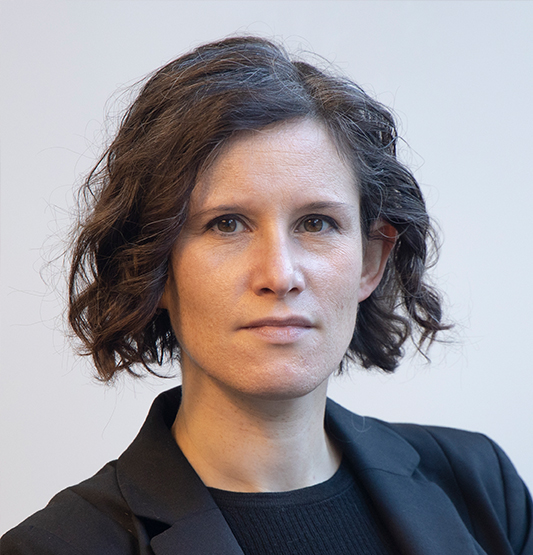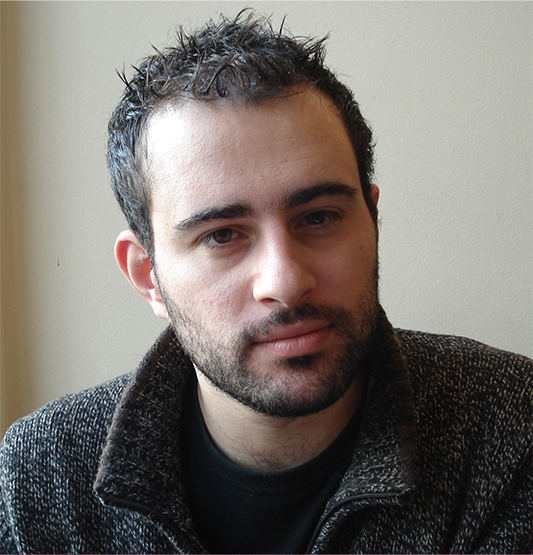
Kristine Jørgensen - September 5

Kristine Jørgensen is professor of media studies at University of Bergen, Norway. She has researched video games, players, and the relationship between the two for two decades. She is the co-editor for Eludamos: Journal for Computer Game Culture and leads the University of Bergen Research Network for Games Research. Jørgensen is the author of Gameworld Interfaces, A Comprehensive Study of Audio in Games, co-author of The Paradox of Transgression in Games and co-editor of Transgression in Games and Play.
Keynote: Debugging “Transgression” in Games and Play
During the last five years, transgression has become a buzzword in game studies. The concept has been used to describe phenomena as diverse as controversial game content, gameplay that goes against design, and toxic player behavior; all phenomena that are research areas in their own rights and that cannot be discussed meaningfully under the same conceptual umbrella.
In this talk I will bring order to the terminological heterogeneity by systematizing the use of the term according to its use and appliance. I will also discuss the term’s relevance in game studies, and argue that its integration will offer a new lens through which to explain games and game culture in a broader context.
Siddhartha Sen - September 6

Siddhartha Sen is a Principal Researcher in the Microsoft Research New York City lab. His research trajectory started with distributed systems and data structures, evolved to incorporate machine learning, and is currently most inspired by humans. His current mission is to use AI to design human-oriented and human-inspired systems that advance human skills and empower them to achieve more. Siddhartha received his BS/MEng degrees in computer science and mathematics from MIT, then worked for three years as a developer in Microsoft’s Windows Server team before returning to academia to complete his PhD from Princeton University. Siddhartha’s work on data structures and human/AI gaming has been featured in several textbooks and podcasts.
Keynote: Characterizing Human Playing Style in Games
What constitutes human “playing style” in games? Can a player be identified from their actions alone, such as the move they make in a given chess position, the way they turn in a racing game, or the patterns of buttons they press in a first-person shooter? Our work on chess has shown that human playing style is indeed unique and learnable at the individual level. Given just a handful of games played by a specific player, we can identify the player from a pool of thousands with very high accuracy. This notion of individual style is more than just a unique marker—it is the starting point for understanding a player’s weaknesses and strengths, and leveraging this understanding to help them learn, improve, and collaborate more effectively with other players. This talk will explore these ideas using chess as an exemplary game, but we will also discuss extensions to other games we are exploring on Xbox. We will also consider the social and ethical implications of creating human-like models at the individual level, and the roles they might play in the future as proxies of their human counterparts.
Konstantinos Dimopoulos - September 7

Konstantinos Dimopoulos is a game urbanist, game designer, author, and educator based in Athens, Greece. He holds a PhD in urban planning and geography, is the Head of Games at SAE Athens, and the author of the Virtual Cities atlas. Konstantinos is often talking on the cities of gaming across Europe, and has been writing on the subject for a variety of publications. He has also contributed chapters to books like Game Writing: Second Edition and the Architectronics of Game Space.
As a game urbanist and designer Konstantinos has worked on several games including ARMA Reforger, The Sinking City, Lake, Ex Novo, Seed, A Place for the Unwilling, and Droidscape: Basilica.
Keynote: Playing With The Building Blocks Of Utopia
Video games are very good when it comes to constructing settings or showcasing imaginary worlds, and are increasingly proficient at offering audiences the highly spatial experience of immersion. Virtual cities, in particular, are some of the medium's most elaborate, and engrossing creations. They are technically and artistically complex, and, while often completely exotic, also to a certain extent always grounded in reality.
Using the building blocks of utopia, the language of video games, and contemporary simulation techniques video games can allow us to liberate imaginations and experiment with perceptions of social and physical space, albeit in a virtual way.
In this talk I will discuss how game design, level design, and game urbanism intersect to shape virtual urban spaces, and how the imaginary cities they conjure, are part of any utopian or dystopian discourse. Imagining and proposing a future for humanity has after all historically been spatial, and city-focused.
Katta Spiel - September 8

Katta Spiel is an FWF Hertha-Firnberg scholar at the HCI Group of TU Wien (Vienna University of Technology), where they work on the intersection of Computer Science, Design and Cultural Studies. They research marginalised perspectives on technologies to inform interaction design and engineering in critical ways so they may account for the diverse realities they operate in.
Keynote: The (Disabled) Surrogate Body in Play
Abstract: Games research is slowly diversifying in matters of representation as well as accessibility related investigations. Similarly, a materialist and embodied understanding of play (also digitally) seeps in more on a theoretical basis. We need to critically examine what kind of bodies are invited to participate in play and how. Using the theory on the surrogate body in play, I illustrate how it can be instrumental to critically engage with norms governing digital play and identifying design opportunities playing with said bodily norms. I do so by focusing on the critical analytical category of disability not just through an access oriented lens per se, but rather to bring principles of disability justice to play.
CONTACT US - fdg2022@easychair.org
